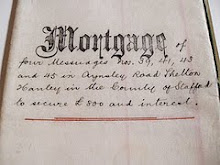Military man returns from war to find home foreclosed.
By SHANNON BEHNKEN | The Tampa Tribune
Published: April 15, 2011
CLEARWATER - U.S. Coast Guardsman Keith A. Johnson returned last year from serving overseas to find his bank had foreclosed on his home. It was set to be auctioned off at the courthouse the next day.
It was a shock, Johnson said. He never was served legal notice of the foreclosure lawsuit against him, court documents show.
The lender, Wells Fargo Bank, also failed to serve his wife, although court records show it sent her numerous letters about a modification request — up until a few weeks before a judge granted the foreclosure.
Johnson's case is particularly troubling, military law experts say, because the federal Servicemembers Civil Relief Act is intended to protect military members from losing their homes while away. The act has received national attention in recent months as service members have come forward to complain about foreclosures, and some lenders have admitted to foreclosing in error.
In this case, Wells Fargo told the court it couldn't find Johnson to serve him the suit. So the lender's attorney, in accordance with the Servicemembers act, asked the judge to appoint a guardian ad litem to represent Johnson. The St. Petersburg firm representing Wells Fargo, the Law Office of Douglas C. Zahm, recommended Tampa lawyer Jay D. Passer, and the court approved the appointment.
"It's almost like playing cards against two opposing people and you're by yourself," Johnson said. "On one hand you're playing against this guy, while this guy's over there setting the deck against you."
Three months later, Passer said he also couldn't locate Johnson. He told the court the plaintiff's pleadings "appear to be in compliance" with state law, court records show. That report was key to allowing the foreclosure to proceed.
"That report waived the service member's rights even though the attorney didn't speak with him one time," said Col. John S. Odom Jr., a nationally recognized military lawyer whose book, "A Judge's Guide to the Servicemembers Civil Relief Act," is expected to be released later this year by the American Bar Association.
"The goal of the (ad litem) attorney should not be to move the suit forward," Odom said. "It is to halt the foreclosure until the defendant can defend himself."
Passer told The Tampa Tribune he verified that Johnson was in the Coast Guard but assumed he was living locally.
"I don't think of the Coast Guard as deploying people," Passer said. "It seemed a minimal chance he was overseas. If I had heard anything about him being (overseas), I would have asked the judge for a stay."
That is exactly what should have happened, said Henry P. Trawick Jr., a Sarasota lawyer and author of "Florida Practice and Procedure," a textbook used by lawyers.
"An attorney ad litem is supposed to defend the person just as though they were being paid $1 million a day to do it," Trawick said.
Wells Fargo spokeswoman Vickee Adams said there are details of the case she can't share because of confidentiality laws that protect consumers.
However, she said the lender worked for three years to either modify Johnson's loan or arrange a short sale. She said the couple were aware that the situation was moving toward foreclosure.
"We did everything we could, and there were obligations the homeowner was unable to meet," Adams said. "We followed the service member act by requesting an attorney ad litem, and we were acting on the validity of the court document filed by his court-appointed attorney."
Passer said he sent a letter to the Coast Guard but did not hear back. He told the court he also searched driver's licenses and death records among other databases to try to locate him.
"Some of my lettersweren't returned to me, so I assumed [Johnson] got them," Passer said.
St. Petersburg foreclosure defense attorney lawyer Matt Weidner, Johnson's attorney now, said it would have been easy to find him.
"All he had to do is walk up to the Coast Guard gate in Clearwater and say, 'I need to find this guy,' " Weidner said. "The military knows where their people are."
During the process, Johnson's wife had moved in to a different home in Hillsborough County after the couple had their fourth child and needed more room. The bank didn't have trouble finding her there to discuss modification requests, Weidner said.
Vilisia Johnson said she never received letters about the foreclosure and none of the bank representatives she spoke with on the phone told her about them.
"I'd been working with the bank, month after month after month, and they had never mentioned anything" about the foreclosure lawsuit, she said.
The foreclosure was granted in June, and the home was supposed to be sold in August. Since then it's been in limbo.
If the foreclosure was not proper, Adams said, a judge can reverse it.
"We rescind foreclosure sales all the time," she said.
Meanwhile, Johnson waits on his day in court.
He was granted his emergency request to the court to stop the sale of the home. For now, Johnson is living in the home, but Wells Fargo's judgment still stands.
Johnson said he knows he likely would have lost the home even if he had been served notice of the foreclosure lawsuit, but maybe if he had been, he said, he would have done things differently.
"I hope to get this figured out before I'm sent somewhere else," he said.

